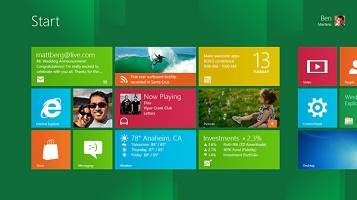Microsoft expects to see explosive growth with Windows 8.
Because it will exist not only on traditional computers but also tablets, Microsoft is boasting about the new operating system and is reaffirming that, after Windows 7 upgrades, it could reach more than 500 million devices in its first year or so on the market.

That number was repeated Steve Ballmer revently, who also made news for saying that Windows 7 will hit 350 million devices by the end of 2012.
If it comes anywhere close to that 500 million number by the end of 2013, Windows 8 will obviously become the fastest-selling operating system in history.
Windows 8 will be unlike any previous version of Microsoft’s operating system because it will have a dedicated focus on tablets that will be separate from the standard PC version.
Microsoft has a lot of ambition with Windows 8, and with a complete interface overhaul and functionality up the wazoo, it does have a chance to make a splash.
The most distinct aspect of Windows 8 is what’s known as the “Metro UI,” which allows users to have complete customization on their home page, including widgets, RSS readers, weather information, date/time, etc.
In addition, since this is such a revolutionary new platform, Microsoft wants to scrap out all remnants of the “old-school” look and feel. Instead of a Start bar, hovering your mouse over that corner of the screen will allow you to swap between the Metro UI and the traditional desktop. For the mobile version of Windows 8, the Metro UI will be the default interface.






